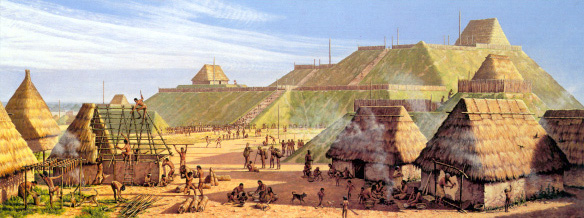Its discovery amid ancient Southwest artifacts establishes a link to Central America, and should demolish the perception that North Americans were uncivilized until 1492.
By Craig Childs
A thousand years ago, people in the Southwest had not invented the wheel, had no armies and relied on stone tools, which has marked them as uncivilized. They are imagined as cavemen. But the recent discovery of chocolate in a broken jar from pre-Columbian New Mexico might be enough to change that kind of thinking.
North Americans in the early centuries AD were gathering into population centers, dabbling in metallurgy and domesticating animals such as dogs and turkeys. Public works were going full swing. Beneath the modern city of Phoenix you will find remains of several hundred miles of mathematically engineered irrigation canals that once fed a hydraulic society on a par with early Mesopotamia.
Structures now known as "great houses" once stood in the Four Corners region--where New Mexico, Colorado, Utah and Arizona meet. They were masonry compounds rising as tall as five stories, their ground plans going on for acres, interiors honeycombed into hundreds of rooms including massive, vaulted ceremonial chambers.
Such an architectural landscape defies cliches about this continent's history. Add into this picture trade routes extending more than 1,000 miles along which goods were being moved from Central America into what is now the United States. These goods included copper implements, live tropical birds and, now we know, chocolate.
Chocolate is the cherry on top of Southwest archaeology, and it tips the balance of perspective.
That era is over. Too much archaeological and ethno-historical evidence has accumulated against it. What happened here 1,000 years ago stands up to Stonehenge and Ban Chiang. Given another several centuries--based on timelines followed on other continents--North America could have become a major player in world civilization, but it was stopped short by the wide-scale cultural unrest between AD 1200 and 1400, followed by the arrival of Christopher Columbus, then smallpox, then the trappings of pioneers. If not for these obstacles, the people here might have turned the Colorado River into another Nile.
So, the next person who tells me not much was happening in prehistoric North America, all I have to say is, "chocolate."


No comments:
Post a Comment